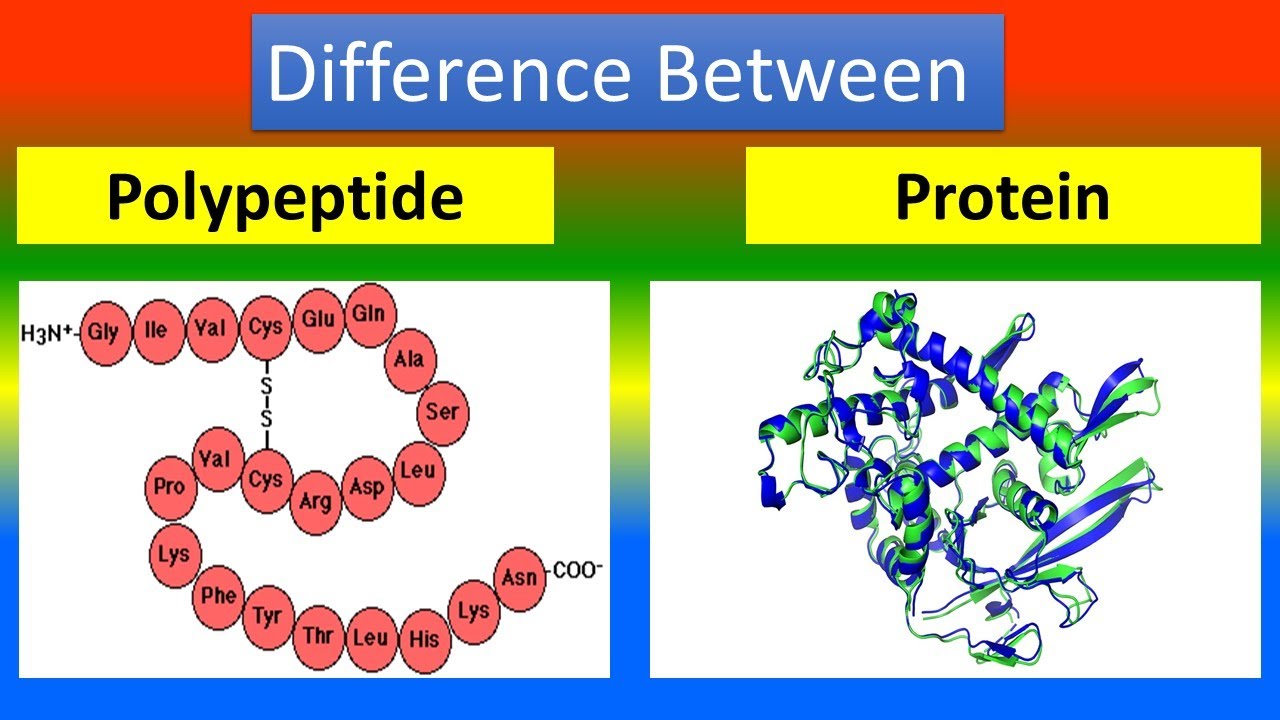
Polypeptides are fascinating molecules that play a crucial role in the world of biology and chemistry. But what exactly are they? Polypeptides are chains of amino acids linked together by peptide bonds. They form the building blocks of proteins, which are essential for nearly every function in living organisms. From muscle movement to enzyme activity, these molecules are everywhere. Understanding polypeptides can help us grasp how life operates on a molecular level. In this blog post, we'll dive into 50 intriguing facts about polypeptides that will expand your knowledge and maybe even spark a newfound interest in biochemistry. Ready to learn more? Let's get started!
Key Takeaways:
- Polypeptides are chains of amino acids that play crucial roles in biology, from forming proteins to regulating gene expression and fighting infections. They are like the superheroes of the biological world, with diverse functions and incredible versatility.
- The process of creating polypeptides is intricate and fascinating, involving DNA instructions, mRNA, tRNA, and ribosomes. Errors in polypeptide synthesis can lead to diseases, while their structure is crucial for their function, just like a puzzle that needs to be put together perfectly.
What Are Polypeptides?
Polypeptides are chains of amino acids linked by peptide bonds. They play crucial roles in biology, forming the building blocks of proteins. Here are some fascinating facts about polypeptides.
- Polypeptides consist of 10 to 100 amino acids.
- They are synthesized in cells through a process called translation.
- Ribosomes are the cellular machinery responsible for polypeptide synthesis.
- The sequence of amino acids in a polypeptide determines its function.
- Polypeptides can fold into complex three-dimensional structures.
- Enzymes are a type of polypeptide that catalyze biochemical reactions.
- Hormones like insulin are also polypeptides.
- Antibodies, which help fight infections, are polypeptides.
- Collagen, a structural protein in skin and bones, is made of polypeptides.
- Hemoglobin, which carries oxygen in blood, is a polypeptide.
Functions of Polypeptides
Polypeptides are incredibly versatile and perform a wide range of functions in living organisms. Let's explore some of these roles.
- Polypeptides can act as signaling molecules.
- They can transport molecules across cell membranes.
- Some polypeptides serve as structural components in cells.
- They can regulate gene expression.
- Polypeptides can also function as toxins in some organisms.
- They play a role in immune responses.
- Polypeptides can be involved in cell adhesion.
- They can act as growth factors.
- Some polypeptides have antimicrobial properties.
- They can also serve as storage molecules for amino acids.
Polypeptide Synthesis
The process of creating polypeptides is intricate and fascinating. Here are some key points about how polypeptides are made.
- DNA contains the instructions for polypeptide synthesis.
- Messenger RNA (mRNA) carries the genetic code from DNA to ribosomes.
- Transfer RNA (tRNA) brings amino acids to the ribosome.
- The ribosome reads the mRNA sequence and assembles the polypeptide.
- Each amino acid is added to the growing polypeptide chain by forming a peptide bond.
- The sequence of nucleotides in mRNA determines the sequence of amino acids.
- Polypeptide synthesis requires energy in the form of ATP.
- The process is highly regulated to ensure accuracy.
- Errors in polypeptide synthesis can lead to diseases.
- Some antibiotics work by inhibiting polypeptide synthesis in bacteria.
Polypeptide Structure
The structure of polypeptides is crucial for their function. Let's delve into the different levels of polypeptide structure.
- The primary structure is the sequence of amino acids.
- The secondary structure includes alpha helices and beta sheets.
- The tertiary structure is the overall three-dimensional shape.
- Quaternary structure involves multiple polypeptide chains.
- Hydrogen bonds stabilize secondary structures.
- Disulfide bonds can form between cysteine residues.
- Hydrophobic interactions help stabilize the tertiary structure.
- The structure of a polypeptide can change in response to environmental conditions.
- Misfolded polypeptides can form aggregates, leading to diseases.
- Chaperone proteins assist in the proper folding of polypeptides.
Polypeptides in Medicine
Polypeptides have significant applications in medicine. Here are some ways they are used in healthcare.
- Insulin, a polypeptide hormone, is used to treat diabetes.
- Polypeptide-based vaccines can protect against diseases.
- Antibodies used in immunotherapy are polypeptides.
- Some antibiotics are polypeptides.
- Polypeptides can be used in drug delivery systems.
- Synthetic polypeptides are being developed for various medical applications.
- Polypeptides can be used to create biomaterials for tissue engineering.
- They are also used in diagnostic tests.
- Polypeptides can be engineered to target specific cells or tissues.
- Research is ongoing to develop new polypeptide-based therapies.
The Final Word on Polypeptides
Polypeptides play a crucial role in the world of biology and medicine. These chains of amino acids form the building blocks of proteins, which are essential for countless bodily functions. From aiding in digestion to supporting immune responses, polypeptides are indispensable. They also hold promise in therapeutic applications, offering potential treatments for various diseases.
Understanding polypeptides can help us appreciate the complexity of life at a molecular level. Their versatility and importance in both natural processes and medical advancements make them a fascinating subject of study. Whether you're a student, a researcher, or just curious, knowing about polypeptides enriches your knowledge of how life operates.
So next time you hear about proteins or amino acids, remember the vital role polypeptides play. They truly are the unsung heroes in the intricate dance of life.
Frequently Asked Questions
Was this page helpful?
Our commitment to delivering trustworthy and engaging content is at the heart of what we do. Each fact on our site is contributed by real users like you, bringing a wealth of diverse insights and information. To ensure the highest standards of accuracy and reliability, our dedicated editors meticulously review each submission. This process guarantees that the facts we share are not only fascinating but also credible. Trust in our commitment to quality and authenticity as you explore and learn with us.
